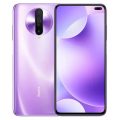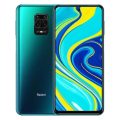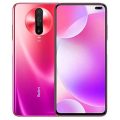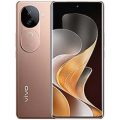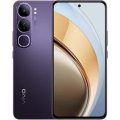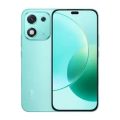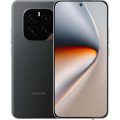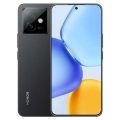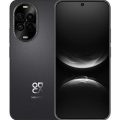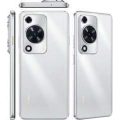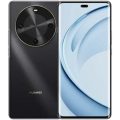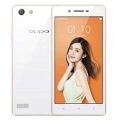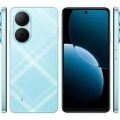Xiaomi Civi 3
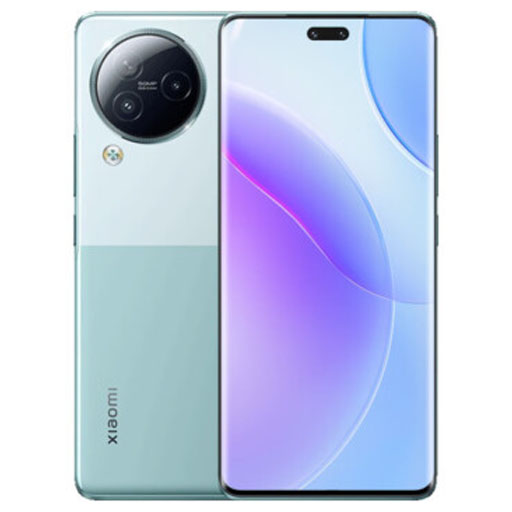


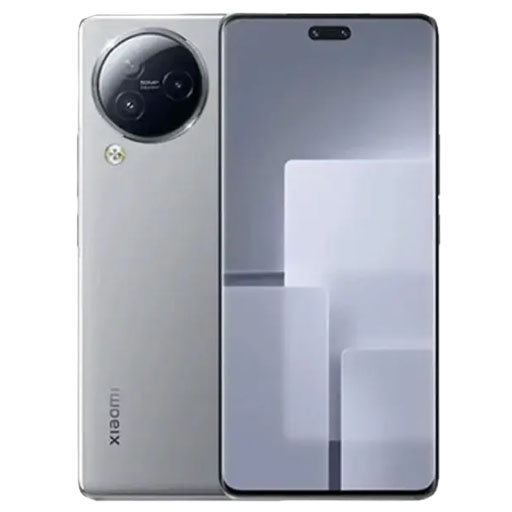
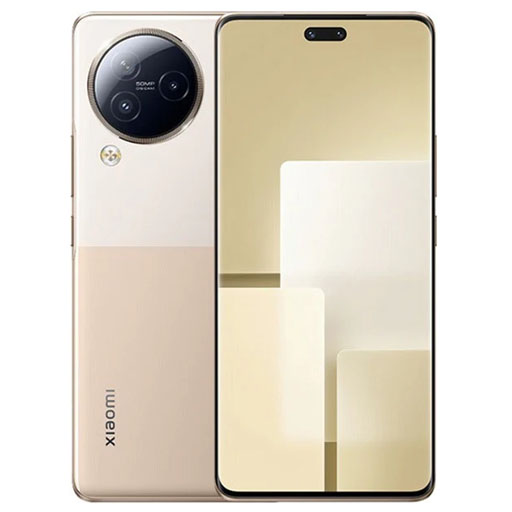
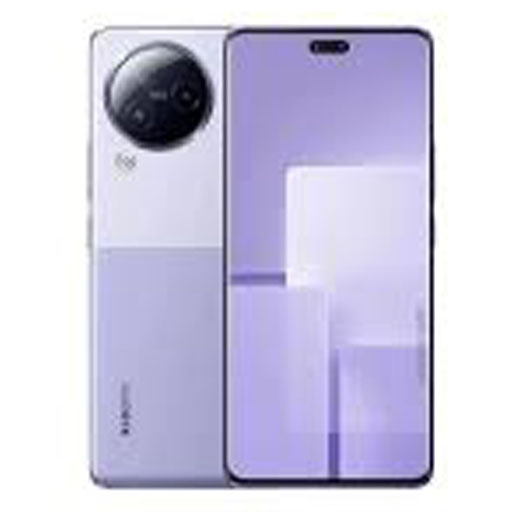
-
Released: 2023, May 25
-
Operating System: Android 13, MIUI 14
-
Display: 6.55" 1080x2400 pixels
-
Camera: 50MP 2160p
-
RAM: 12/16GB RAM Dimensity 8200 Ultra
-
Battery: 4500mAh Li-Po
Specifications
Prices
| Unofficial Unofficial |
8GB 256GB ৳56,000 / 12GB 256GB ৳60,000 / 16GB 1TB ৳67,000 |
Launch
| Announced Announced | 2023, May 25 |
| Status Status | Available. Released 2023, May 25 |
Network
| Technology Technology | GSM / CDMA / HSPA / CDMA2000 / LTE / 5G |
| 2G 2G |
GSM 850 / 900 / 1800 / 1900 - SIM 1 & SIM 2 CDMA 800 |
| 3G 3G |
HSDPA 800 / 850 / 900 / 1700(AWS) / 1900 / 2100 CDMA2000 1x |
| 4G 4G |
1, 2, 3, 4, 5, 7, 8, 18, 19, 26, 34, 38, 39, 40, 41, 42 |
| 5G 5G |
1, 3, 5, 8, 28, 38, 41, 77, 78 SA/NSA |
| Speed Speed | HSPA, LTE-A, 5G |
| GPRS GPRS | |
| EDGE EDGE |
Body
| Dimensions Dimensions | 158.7 x 71.7 x 7.6 mm (6.25 x 2.82 x 0.30 in) |
| Weight Weight | 174 g (6.14 oz) |
| Build Build | Glass front (Gorilla Glass 5), glass back, aluminum frame |
| SIM SIM |
Dual SIM (Nano-SIM, dual stand-by) |
Display
| Type Type | AMOLED capacitive touchscreen, 1B colors |
| Size Size | 6.55 inches, 103.6 cm2 (~89.5% screen-to-body ratio) |
| Resolution Resolution | 1080 x 2400 pixels, 20:9 ratio (~402 ppi density) |
| Protection Protection | Corning Gorilla Glass 5 |
| Refresh Rate Refresh Rate | 120Hz |
| Features Features | Dolby Vision, HDR10+, 120Hz, 1000 nits (peak) |
Platform
| Operating System OS => Every computer system run on a base software called Operating System (OS). Operating System controls all basic operations of the computer (such as smartphone, PDAs, tablet computers and other handheld devices). The Operating System allows the user to install and run third party applications (apps), apps are used to add new functionality to the device. | Android 13, MIUI 14 |
| Chipset Chipset |
Mediatek Dimensity 8200 Ultra (4 nm) |
| CPU CPU |
Octa-core (1x3.1 GHz Cortex-A78 & 3x3.0 GHz Cortex-A78 & 4x2.0 GHz Cortex-A55) |
| GPU GPU |
Mali-G610 MC6 |
Memory
| Card slot Card slot | No |
| Internal Internal | 256/512 GB / 1TB |
| RAM RAM | 12/16 GB |
Main Camera
| Back Back |
50 MP, f/1.77, (wide), 1/1.49", 1.0µm, PDAF, OIS 8 MP, f/2.2, 115˚ (ultrawide), 1.12µm 2 MP, f/2.4, (macro) |
| Features Features | Dual-LED dual-tone flash, HDR, panorama |
| Video Video |
4K@30fps, 1080p@30/60/120fps, 720p@960fps; gyro-EIS |
Selfie camera
| Front Front |
32 MP, f/2.0, 26mm (wide), 1/2.8", 0.8µm, AF 32 MP, f/2.4, 100˚ (ultrawide), 1/2.8", 0.8µm |
| Features Features | 2 Dual-LED dual-tone flash, HDR, panorama |
| Video Video |
4K@30fps, 1080p@30/60fps; gyro-EIS |
Sound
| Alert Types | Vibration, MP3, WAV ringtones |
| Loudspeaker | Yes, with stereo speakers |
| 3.5 mm jack 3.5 mm jack | No 24-bit/192kHz audio Tuned by Harman Kardon |
Connectivity
| WLAN WLAN | Wi-Fi 802.11 a/b/g/n/ac/6, dual-band, Wi-Fi Direct |
| Bluetooth Bluetooth is a wireless communications technology for exchanging data between mobile phones, headsets, computers and other network devices over short distances without wires, Bluetooth technology was primarily designed to support simple wireless networking of personal consumer devices. | 5.3, A2DP, LE |
| GPS GPS The Global Positioning System is a satellite-based radio navigation system, GPS permits users to determine their position, velocity and the time 24 hours a day, in all weather, anywhere in the world, In order to locate your position, your device or GPS receiver must have a clear view of the sky. | GPS (L1), GLONASS (G1), BDS (B1I+B1c), GALILEO (E1), QZSS (L1) |
| NFC NFC (Near field communication) is a set of standards for smartphones and similar devices to establish peer-to-peer radio communications with each other by touching them together or bringing them into proximity, usually no more than a few inches. | |
| FM Radio | No |
| USB | USB Type-C 2.0, OTG |
| Infrared port Infrared connectivity is an old wireless technology used to connect two electronic devices. It uses a beam of infrared light to transmit information and so requires direct line of sight and operates only at close range. |
Features
| Sensors Sensors are electronic components that detects and responds to some type of input from the physical environment. The specific input could be light, heat, motion, moisture, pressure and location, The output is generally a signal that is converted to use in computing systems, a location sensor, such as a GPS receiver is able to detect current location of your electronic device. |
Fingerprint (under display, optical), accelerometer, gyro, proximity, compass, color spectrum |
| Messaging Messaging | SMS(threaded view), MMS, Email, Push Email, IM |
| Browser Web Browser => a web browser is a software application used to locate, retrieve and display content on the World Wide Web, including Web pages, images, video and other files, The primary function of a web browser is to render HTML, the code used to design or markup webpages. | HTML5 |
| Java Support Java for Mobile Devices is a set of technologies that let developers deliver applications and services to all types of mobile handsets, ranging from price efficient feature-phones to the latest smartphones. Java is currently running on over 3 billion phones worldwide, and growing. It offers unrivaled potential for the distribution and monetization of mobile applications. |
Battery
| Battery Type Battery Type => Cell phones run on various kinds of batteries depending on the manufacturer, phone size or shape and features. There are basically four types of cell phone batteries => Lithium Polymer, Lithium Ion, Nickel Metal Hydride and Nickel Cadmium. | Non-removable Li-Po |
| Capacity Battery Capacity is a measure (typically in Amp-hr) of the charge stored by the battery, and is determined by the mass of active material contained in the battery. The battery capacity represents the maximum amount of energy that can be extracted from the battery under certain conditions. | 4500 mAh |
| Charging Wireless Charging (Inductive Charging) uses an electromagnetic field to transfer energy between two objects. This is usually done with a charging station. Energy is sent through an inductive coupling to an electrical device, which can then use that energy to charge batteries or run the device. |
67W wired, PD3.0, 100% in 38 minutes (advertised) |
| Fast Charging Fast Charging | Yes |
More
| Made by Made by | China |
| Colors |
Purple, Mint, Gold, Gray |
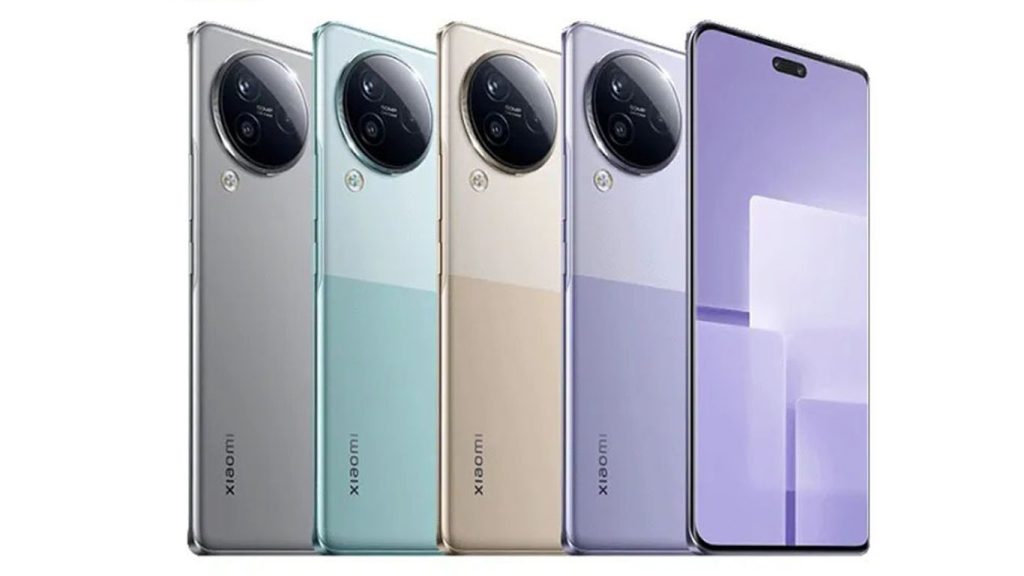
In-Depth Review of the Xiaomi Civi 3 for the Bangladeshi Market
The Xiaomi Civi 3 is one of Xiaomi’s most stylish and performance-oriented mid-range smartphones, designed to appeal to young consumers who value both aesthetics and functionality. While Xiaomi has established a strong presence in Bangladesh with its Redmi and Mi series devices, the Civi lineup is comparatively new, targeting users who want premium features without the premium flagship price. In this review, we will explore the Xiaomi Civi 3 in detail, covering its design, performance, camera quality, software experience, and overall suitability for Bangladeshi consumers. (Xiaomi Civi 3 2%)
Overview and Key Features
The Xiaomi Civi 3 is marketed as a “fashion-centric” smartphone, blending sleek design with powerful specifications. Its most notable features include:
- Display: 6.55-inch AMOLED display with 120Hz refresh rate and HDR10+ support.
- Processor: MediaTek Dimensity 8200 Ultra chipset, built on a 4nm process.
- Cameras: Dual 32MP front-facing cameras and a 50MP Sony IMX800 main rear sensor.
- Battery: 4500mAh with 67W fast charging.
- Software: MIUI 14 based on Android 13.
- Build: Slim, lightweight body with a premium matte-glass finish.
These specs indicate a balance between performance, design, and practicality, which makes the phone appealing in a competitive market like Bangladesh.
Design, Build Quality, and Ergonomics
One of the main attractions of the Xiaomi Civi 3 is its design. In Bangladesh, where younger consumers increasingly value aesthetics and slim form factors, this device stands out. At just around 7.3mm thickness and 173g weight, the Civi 3 is one of the slimmest and lightest smartphones in its category. This makes it easy to carry and comfortable for long usage, especially for students and professionals who rely heavily on mobile devices.
The phone is available in multiple trendy colors, including Rose Purple, Adventure Gold, Mint Green, and Coconut Gray. These color options align well with the preferences of Bangladeshi youth, who are often drawn to stylish devices that complement personal fashion. The matte-glass back also helps reduce fingerprint smudges, keeping the phone looking fresh.
Ergonomically, the curved edges and symmetrical bezels add to the premium feel. Many Bangladeshi users prefer devices that look expensive without costing as much as high-end flagships, and the Civi 3 delivers in this regard.
Display Quality
For media consumption, the Civi 3 excels. The 6.55-inch AMOLED display offers Full HD+ resolution with 120Hz refresh rate and HDR10+ support, making it excellent for streaming YouTube, Netflix, or local OTT platforms like BongoBD and Chorki. The 120Hz refresh rate ensures smooth scrolling, which Bangladeshi gamers and social media users will particularly appreciate.
The brightness levels are sufficient for outdoor usage, which is important given the sunny and humid climate in Bangladesh. Whether browsing in daylight or watching content at night, the display maintains clarity and vibrancy.
Performance and Processor Power
Under the hood, the Xiaomi Civi 3 is powered by the MediaTek Dimensity 8200 Ultra, a 4nm chipset designed for efficiency and performance. This chipset competes directly with Qualcomm’s Snapdragon 7+ Gen 1 and offers similar, if not better, power efficiency.
In real-world usage, this means smooth performance in multitasking, app switching, and gaming. For Bangladeshi gamers, popular titles such as PUBG Mobile, Free Fire, and Call of Duty run smoothly at high graphics settings without significant heating issues. The phone’s liquid cooling system also helps maintain stable performance during extended gaming sessions.
The 8GB/12GB RAM variants with 256GB/512GB UFS 3.1 storage further enhance the experience. For local consumers who often use their phones for entertainment, photography, and app-heavy multitasking, this setup ensures minimal lag and reliable performance.
Software and User Experience
The Xiaomi Civi 3 comes with MIUI 14, based on Android 13. Xiaomi’s MIUI is well-known in Bangladesh, and while some users find it heavy compared to stock Android, it offers numerous features like dual apps, floating windows, and extensive customization options.
The phone also comes with several pre-installed apps, some of which may not be useful for Bangladeshi users. Fortunately, most can be uninstalled. On the plus side, Xiaomi has improved bloatware management in MIUI 14, making the interface cleaner.
For Bangladeshi consumers who rely heavily on apps like bKash, Nagad, Pathao, Shohoz, and Daraz, MIUI’s app management and notification control provide a smoother experience. Additionally, the IR blaster is a handy feature for controlling TVs, ACs, and set-top boxes—a surprisingly practical addition for Bangladeshi households.
Camera System and Photography Experience
Cameras are among the strongest selling points of the Xiaomi Civi 3. It comes with a 50MP Sony IMX800 main sensor, paired with an 8MP ultra-wide camera and a 2MP macro lens. However, what makes this device unique is its dual 32MP front cameras—one with a wide-angle lens and one with an ultra-wide option.
For Bangladeshi consumers, selfies and social media content creation are major considerations. The Civi 3 is clearly designed with influencers, vloggers, and everyday social media enthusiasts in mind. The dual front cameras allow for high-quality group selfies, vlogs, and live sessions on platforms like TikTok, Facebook Live, and YouTube.
The rear 50MP camera delivers excellent performance in daylight, producing sharp, vibrant images. Low-light photography is also improved with Xiaomi’s night mode, though it may not match flagship devices in terms of detail. Still, for its price segment, the results are impressive and more than sufficient for everyday use.
Video recording supports up to 4K at 60fps, ensuring smooth, detailed footage. This is particularly valuable for local content creators who want high-quality output without investing in expensive equipment.
Battery Life and Charging
The 4500mAh battery might seem smaller compared to some competing models that offer 5000mAh, but Xiaomi compensates with efficient optimization and 67W fast charging. In everyday usage, the phone comfortably lasts a full day, even with heavy usage involving gaming, photography, and social media.
For busy Bangladeshi lifestyles, where charging opportunities can be limited, the 67W fast charger is a game-changer. It charges the phone from 0 to 100% in about 40 minutes, which is ideal for students, professionals, and commuters who need quick top-ups.
Connectivity and Storage Options
The Xiaomi Civi 3 supports 5G connectivity, which, while not yet widely available in Bangladesh, makes the phone future-ready. For now, 4G connectivity remains stable and efficient. Other features include Wi-Fi 6, Bluetooth 5.3, NFC (in select markets), and an IR blaster.
Storage options range from 256GB to 512GB, which is more than sufficient for most Bangladeshi users, given the popularity of video downloads, app usage, and offline media storage. Unfortunately, the phone does not offer expandable storage via microSD, which could be a drawback for some users who prefer additional flexibility.
Comparison with Competitors
In Bangladesh, the Xiaomi Civi 3 competes with devices like the Samsung Galaxy A54, Realme GT Neo 3, and OnePlus Nord 3.
- Against Samsung Galaxy A54: The Civi 3 has a slimmer design and better performance, while Samsung offers longer software support and slightly better low-light photography.
- Against Realme GT Neo 3: Realme provides faster 150W charging, but the Civi 3 excels in design, selfie quality, and overall user experience.
- Against OnePlus Nord 3: OnePlus offers a near-stock Android feel, but the Civi 3 wins in design aesthetics and camera performance, especially for selfies.
For Bangladeshi consumers, who prioritize design, camera performance, and value-for-money, the Civi 3 holds a strong position.
Value Proposition for the Bangladeshi Market
Bangladeshi buyers are typically price-sensitive, looking for a balance between performance, style, and long-term usability. The Xiaomi Civi 3 offers a premium look and feel, powerful performance, excellent selfie cameras, and fast charging at a competitive mid-range price point.
Its slim, stylish design will appeal to younger buyers, while its powerful chipset and high-quality cameras will attract gamers and content creators. However, the lack of expandable storage and limited availability in Bangladesh could be concerns. If officially released at a reasonable price, the Civi 3 has the potential to become one of the most popular mid-range phones in the country.
Conclusion
The Xiaomi Civi 3 is more than just a mid-range smartphone—it is a lifestyle device designed for young, style-conscious users who also demand performance and versatility. For Bangladeshi consumers, it delivers in key areas: sleek design, vibrant display, excellent front-facing cameras, smooth performance, and fast charging.
While it faces stiff competition from Samsung, Realme, and OnePlus, its unique design and selfie-focused features give it an edge. For those in Bangladesh seeking a phone that blends fashion with function, the Xiaomi Civi 3 is a highly attractive option.
In summary, the Xiaomi Civi 3 offers excellent value for money, especially for youth and content creators in Bangladesh. Its strengths outweigh its minor drawbacks, making it a worthy contender in the Bangladeshi mid-range smartphone market.
Reviews
Disclaimer Note
We always try our best to keep our website content and information updated and correct, the material and information contained on our website is for general information purposes only, You should not rely upon the material and information as a basis for making any business, legal or any other decisions.

